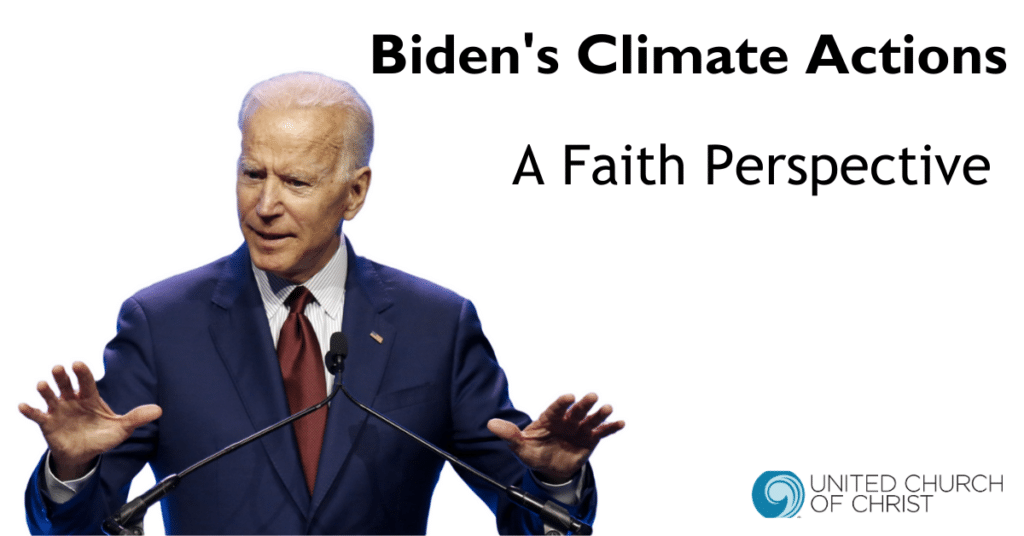Biden’s Climate Actions

With their focus on addressing the climate crisis, restoring a respect for science, creating jobs, and delivering environmental justice, Wednesday’s executive orders from the Biden administration are cause for sober-minded reflection and hope. Climate and environmental organizations have praised the executive actions. Varshini Prakash from the Sunrise Movement declares, “Today makes clear that President Biden hears our generation’s demands loud and clear, understands the power of our movement, and is serious about using executive power to deliver on his campaign promises.”
In the context of the climate crisis, one can always say that almost any action doesn’t go far enough. A critic could also point to the partial commitment of putting a “pause” on the fossil fuel leasing of federal lands while Biden declares his administration will not “ban fracking.” Even though it is true that his administration cannot unilaterally ban fracking, it remains to be seen how the present measure will play out as part of a possibly larger political strategy.
With that said, there are reasons to take a very positive view of the executive actions. First, as Christians, one question to ask in reviewing any policy is whether or not it will tangibly make the lives of one’s neighbors better. With Biden’s executive orders, there are prominent aspects that suggest concrete improvements that go beyond the rhetoric of lofty goals and the promises of new task forces. Consider the establishment of a job creating Civilian Climate Corps modeled after New Deal’s Civilian Conservation Corp or the mandate to deliver 40% of benefits from climate investments to frontline communities. These policies can make a real difference in the lives of one’s neighbors.
A second reason for a more positive view is that Biden’s actions are the result of a movement that will only continue to grow in numbers and power. A sustained movement can not only bring accountability to goals but can also increase the ambition of those goals. Faith communities can play a key role in this movement by converging to act with a clear articulation of why we do so. We act because we are caretakers and protectors of creation. We act because we fiercely love our neighbors and our children. We act because we are driven by a God propelled sense of justice. When the faithful act together in love and in justice, we become an embodied hope for ourselves and for others.
Related News
Walking the Talk: Environmental Practices and a Commitment to Justice
St. James United Church of Christ in Hamburg, New York (a suburb of Buffalo) has been...
Read MoreThe Antidote to Power from Above
With its themes of moral reckoning and repentance, this Lenten season brings into stark relief...
Read MoreDon’t Incinerate – Innovate!
Thirty-eight years ago, the United Church of Christ's Commission for Racial Justice released a...
Read More


